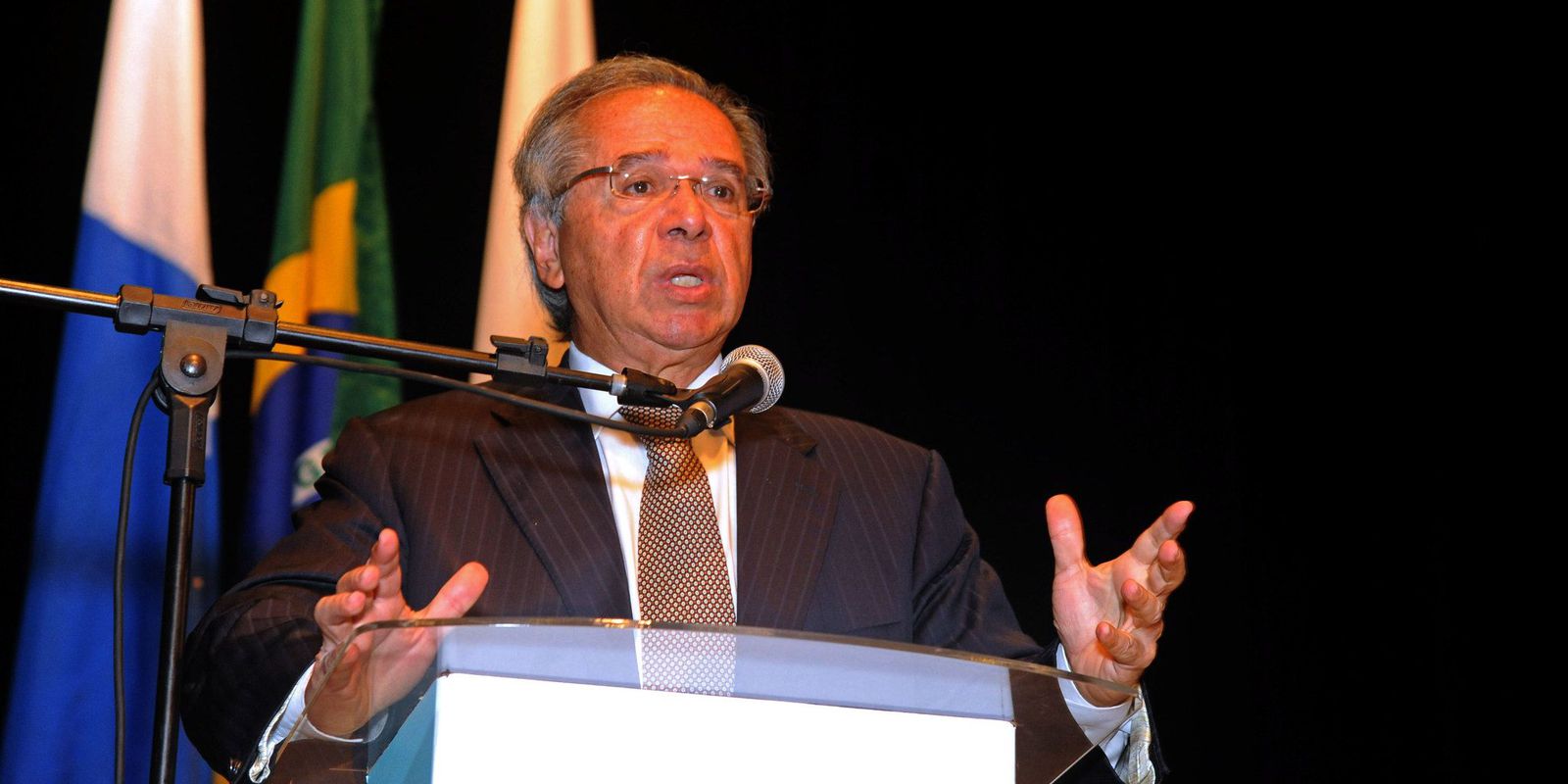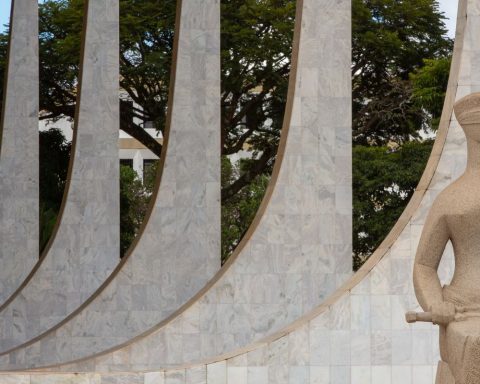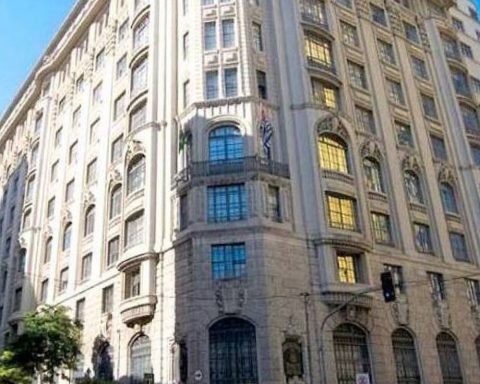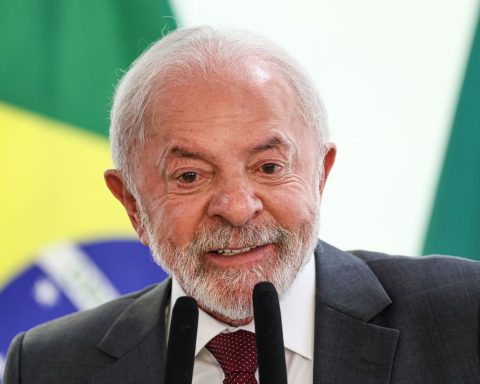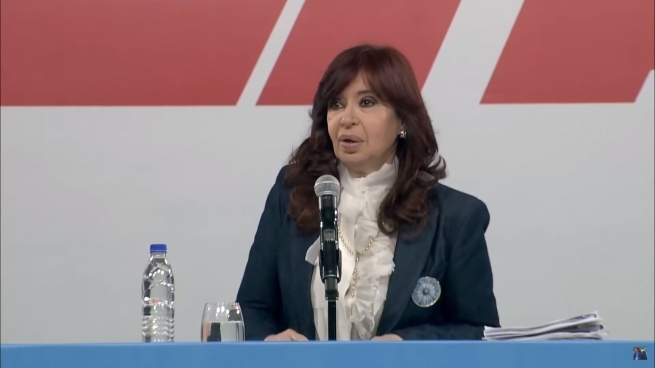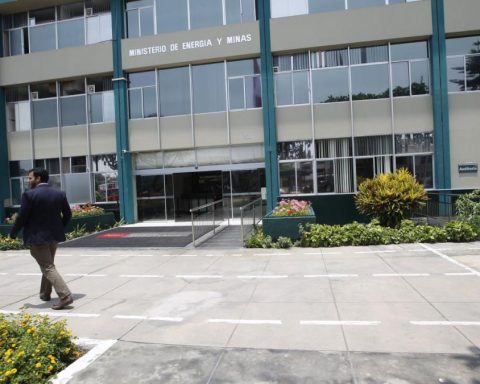During a ceremony to commemorate the 70th anniversary of the National Bank for Economic and Social Development (BNDES), the Minister of Economy, Paulo Guedes, recalled that the financial institution owes the Union and criticized the legal position presented to the Federal Audit Court (TCU). The event took place today (20), in the auditorium of the bank’s headquarters. The speech was accompanied by employees, bank managers and guests and was also broadcast on social media.
Guedes’ criticism came after he highlighted the new guidelines in the bank’s management and classified the work carried out in the last three years as “brilliant”. According to the minister, in this period, around R$ 260 billion were returned.
“They still owe us. And they tricked us. The legal staff who must be out there went to the TCU. Inflation went up and when inflation goes up, the subsidy increases. inflation goes up, Brazil is subsidizing the BNDES. But the BNDES legal had the courage to go to the TCU to convince the TCU that it is the opposite. And the TCU fell. They said that if you returned it now, there would be a loss for the bank . It’s the opposite. The BNDES is benefiting. You should be returning it because Brazil needs it”, he evaluated.
The president of BNDES, Gustavo Montezano, commented that around R$ 400 billion were returned. “It wasn’t that,” insisted Guedes. At another point in the speech, he returned to the subject. “If it’s BRL 400 billion, it’s legal. If it’s BRL 260 billion, you owe me BRL 140 billion and you have to pay it by the end of the year. And then you have to get your legal department and tell them: ‘collaborate there’. It doesn’t oblige us to ask for dividends. If we don’t have to say: ‘then give me 100% of the dividends'”, he said.
Management
In his speech, Guedes praised the BNDES’ actions in the privatization of Eletrobras and the State Water and Sewerage Company of Rio de Janeiro (Cedae). He also defended the privatization of Petrobras and Banco do Brasil. He proposed that the funds obtained be used to create two funds to be managed by the BNDES: one for poverty eradication and the other for national reconstruction.
The minister also defended the economic management of the federal government and considered that there is intellectual dishonesty in analyzes that ignore the humanitarian and health tragedy of the covid-19 pandemic. “All our moves are in the right direction. We started by blocking the first expense, which was social security. Then, we deleveraged public banks to bring down the debt/GDP ratio [Produto Interno Bruto, soma de todos os bens e serviços produzidos no país]”, he said, citing the implementation of an informal administrative reform, reducing the size of the state through digitization, avoiding new hires.
World economy
Guedes presented a prognosis of “worst days” for the world economy, but maintained that Brazil is at the beginning of a new development cycle and has its own growth dynamics. “We’re out of sync with the world economy. Don’t believe that if it sinks out there, we’re lost. It’s not true. We have vitamins to grow,” he said.
In his view, the scenario for Europe and the United States is one of inflation and recession. “Brazil is the opposite. We got up, got a slap on the head and fell again. It was the covid-19. We got up again and took it now with this war in Ukraine. But the truth is that we have resilience, we have strength and we have almost R$ 900 billion of investments for the next 10 years”. He also assesses that global efforts around energy security and food security open up opportunities for the country. “Brazil is doomed to grow”, he says.
Letter
Also during the ceremony, Montezano announced that the BNDES had produced a letter to Brazilian states, through which state and municipal managers could learn about and understand the financial institution’s products for each region. In addition, the ordinance for the second edition of the Emergency Credit Access Program (Peac) was signed, in support of small and medium-sized companies. The initiative is the result of a partnership between BNDES and the Ministry of Economy. The first edition appeared in 2020 as a measure to mitigate the crisis caused by covid-19.
